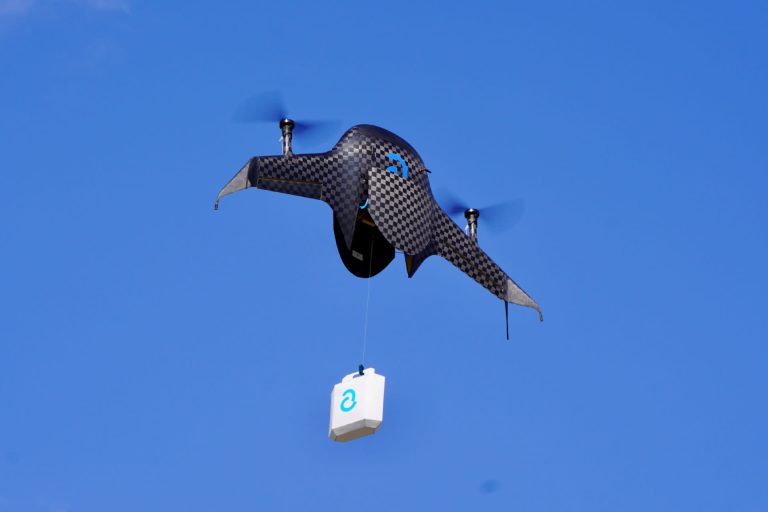Airbound, a fast-rising Indian drone startup, has raised $8.65 million in seed funding to scale its groundbreaking rocket-style delivery drones capable of one-cent parcel deliveries. The round was led by Lachy Groom, co-founder of Physical Intelligence, with participation from Humba Ventures, existing backer Lightspeed Venture Partners, and senior executives from Tesla, SpaceX, and Anduril.
Founded in 2020 by Naman Pushp, then just 15 years old, Airbound is redefining drone logistics with an ultra-light, blended-wing-body aircraft that combines rocket-like vertical takeoff with airplane-style flight. Built using a tail-sitter design and carbon fiber frame, the drone delivers goods 20 times cheaper than current systems.
Airbound’s Breakthrough: One-Cent Drone Deliveries
Airbound’s model, called the TRT, is designed for small payloads and optimized for energy efficiency. Pushp explains that typical electric two-wheelers used for delivery in India cost about ₹2 ($0.02) per kilometer in energy, while Airbound’s drone slashes that to ₹0.10 ($0.001) — a 20-fold reduction.
“There’s a massive gap between where drones are today and where they can be,” said Pushp. “Our goal is to rethink aerodynamic efficiency so we can deliver goods faster, cheaper, and more sustainably.”
The startup’s first-generation drone weighs 3.3 pounds and carries a 2.2-pound payload. Its upcoming second version, expected to debut mid-2026, will support 6.6 pounds of cargo while weighing just 2.6 pounds, offering unprecedented energy-to-weight efficiency.
Scaling Manufacturing and Global Expansion
Airbound’s drones cost roughly $2,000 to manufacture and about ₹24 ($0.27) per delivery today. The company aims to reduce that to under ₹5 ($0.05) by 2026. To reach one million deliveries per day by 2027, Airbound plans to increase production to 100 drones per day, up from its current rate of one drone daily at its Bengaluru facility.
The startup has launched its first pilot project with Narayana Health in Bengaluru, delivering blood samples, test kits, and other critical medical supplies. Beyond healthcare, Airbound is targeting quick commerce, food delivery, and other last-mile logistics sectors.
Global Vision and Regulatory Push
Having raised over $10 million to date, Airbound is already engaging with India’s Directorate General of Civil Aviation to secure flight clearances. Once it scales operations domestically, the company plans to enter the U.S. market within three years.
Pushp’s long-term goal is clear: to make autonomous drone delivery as routine as sending a text message. “In the world of autonomy, logistics is just physics,” he said. “If you have less weight and higher efficiency than anyone else, you win.”

